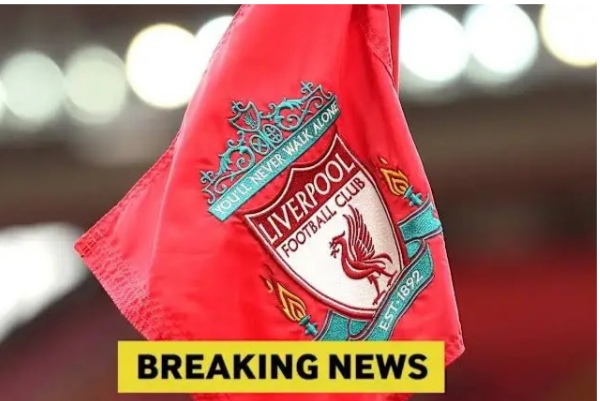When the summer transfer window burst open, Manchester United’s search for a new goalkeeper was never going to be straightforward. With André Onana’s shaky first season still fresh in the memory and Ruben Amorim keen to reshape his squad, the club’s hierarchy faced a delicate balancing act: should they go for proven world-class pedigree or invest in the long-term future of the team?
At one point, the answer seemed obvious. Emiliano Martínez — World Cup winner with Argentina, Aston Villa’s defensive talisman, and one of the Premier League’s most consistent performers — was ready to trade Villa Park for Old Trafford. Personal terms were swiftly agreed, and sources close to the player suggested he was “excited” at the prospect of leading United’s new era between the sticks.
But then came the twist. Instead of Martínez, United pushed forward with Senne Lammens, a 22-year-old Belgian keeper from Royal Antwerp. For many fans, it felt like a puzzling decision: why swap the guaranteed reliability of a proven No.1 for a relatively untested talent?
Now, the reasons behind the decision have begun to surface. According to insiders at Carrington and reports from those close to the club, two key factors sealed the fate of the Martínez deal — financial strategy and dressing-room dynamics.
Reason One: Financial Prudence Meets Long-Term Vision
United’s transfer policy this summer has been defined by one word: sustainability. Years of reckless spending and hefty contracts have left the club vulnerable to Financial Fair Play (FFP) restrictions. The Glazers may be loathed by the fanbase, but even under new structural changes, the club must tread carefully to avoid sanctions.
Martínez, while available and willing, came with a hefty price tag. Aston Villa were demanding close to £60 million for their star keeper — a sum United’s recruitment team felt was excessive given his age (32) and limited resale value. To complicate matters, his wage demands would have placed him among United’s top earners, a structure Amorim has been determined to recalibrate.
Lammens, by contrast, represented value. Signed for a fraction of the cost, the Belgian is seen as a raw but exciting project who can grow into the role. At 22, he embodies the “project signing” that Amorim has advocated since his arrival — young, coachable, and with time to develop.
One source inside United put it bluntly:
“Martínez would have been a quick fix. Lammens is a long-term bet. We can’t afford another big-money short-term solution that blocks the pathway of young players.”
The club’s hierarchy, bruised by years of expensive missteps — from Alexis Sánchez to Harry Maguire — appear unwilling to repeat the same mistakes.
Reason Two: Dressing-Room Dynamics and the Onana Factor
The second reason is less about money and more about human psychology. Bringing Martínez into the squad risked destabilising André Onana, a keeper whose confidence has already been tested since his arrival from Inter Milan.
Onana has had a turbulent spell at Old Trafford — spectacular shot-stopping offset by high-profile errors. Yet Amorim believes the Cameroonian can still rediscover his best form if placed in the right environment. Signing Martínez, a dominant figure with a commanding personality, would almost certainly have demoted Onana to the bench.
That scenario risked igniting friction in the dressing room. Onana, sources claim, was already frustrated after his wage packet took a hit due to United missing out on the Champions League. Adding a direct rival of Martínez’s stature might have forced his hand — and pushed him towards the exit.
Instead, Lammens provides competition without immediate confrontation. The Belgian can learn behind Onana, feature in cup games, and gradually stake his claim. It’s a less disruptive choice, one that allows Amorim to keep Onana engaged while future-proofing the squad.
As one insider framed it:
“Martínez walks in as No.1 and Onana walks out. Lammens walks in, learns, and grows. That’s the difference.”
Fan Frustration: A Risky Gamble?
Not all supporters are convinced by United’s logic. For many, the thought of passing up a goalkeeper of Martínez’s calibre feels like another example of the club prioritising balance sheets over silverware. Social media reaction was swift, with one fan writing:
“This is Manchester United — not a development project. We need leaders now, not in five years.”
Indeed, Martínez’s leadership, penalty-saving heroics, and winning mentality might have been exactly what United needed in the short term. With Amorim under pressure to deliver immediate results, the decision to bypass a ready-made world-class keeper could prove risky.
Lammens: The Unknown Prospect
So, who exactly is Senne Lammens, the man now tasked with eventually inheriting one of football’s most scrutinised positions?
A towering presence at 6’6”, Lammens came through Club Brugge’s youth system before moving to Royal Antwerp. He has been capped at youth level for Belgium and is regarded as one of the most promising keepers of his generation. Known for his aerial command and reflex saves, he still lacks the experience of playing at the very highest level.
For Amorim, however, that is not a deterrent — it is an opportunity. He sees in Lammens a blank canvas, a player he can mould to fit United’s evolving style. With time, patience, and exposure to Premier League football, United believe they could have unearthed a future star.
One Star Likely to Go
Amid all the goalkeeper reshuffling, one truth has become clear: a current United goalkeeper will be sacrificed. Sources indicate that Dean Henderson, once tipped to be David de Gea’s successor, is likely to leave the club permanently. Henderson wants regular first-team football, and United’s decision to bring in Lammens effectively blocks any path back into the starting XI.
That departure would not only raise funds but also clear space in the squad for the Belgian’s integration. It’s a domino effect, and one United hope will stabilise their goalkeeping department for years to come.
The Bigger Picture
In many ways, the Martínez-Lammens saga reflects the wider transformation taking place at Old Trafford. Amorim is not just rebuilding a squad; he’s reshaping a philosophy. United want to shed the reputation of a club chasing expensive quick fixes and instead focus on creating a sustainable, modern footballing structure.
But make no mistake — the gamble is real. If Lammens struggles to adapt or if Onana fails to rediscover his best form, the decision to pass up Martínez could come back to haunt United. Fans demand trophies, not just balance sheets, and patience at Old Trafford is always in short supply.







